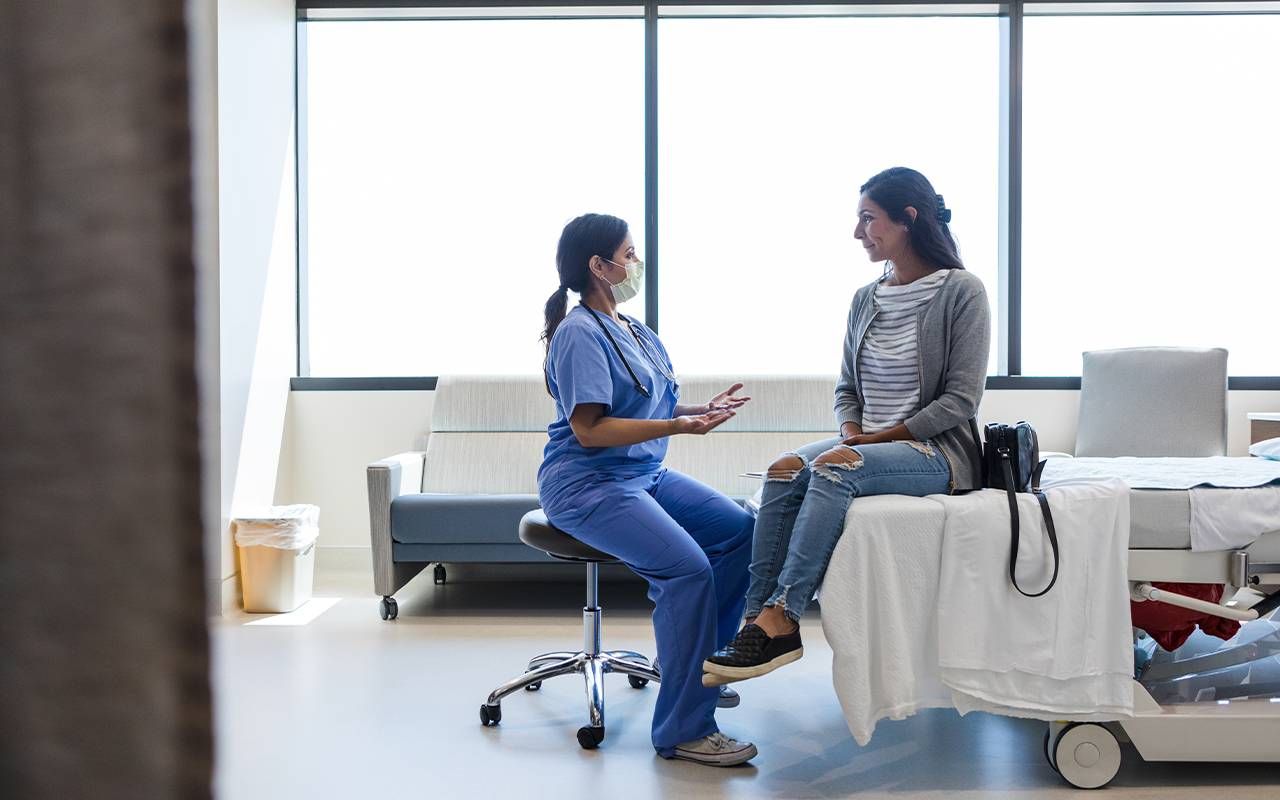Take Steps Now to Address Dementia Concerns
Because potential caregivers ought to know what type of help is available for dementia patients and their caregivers alike
The randomness and severity of dementia terrify me. Although I exercise, eat right and stay mentally active, I could lose brain function suddenly after an accident or stroke or slowly over decades. The Alzheimer's Association reports that one-third of older adults will die with Alzheimer's or other dementias, and almost 11% of Americans over the age of 65 have Alzheimer's.

What's more, these numbers are significantly increasing. The number of Americans with Alzheimer's will more than double, from six to thirteen million, by 2050.
I didn't plan to discuss dementia during my recent mammogram, but the topic came up while I was secured in position. As the cool metal frame twisted my pancaked breast farther than imaginable, I focused on taking short, shallow breaths. This was not the place to move, much less pass out from lack of oxygen.
"I can't imagine how hard this would be for someone with dementia," I commented toward the nurse's navy clogs. She said, "I had a dementia patient here last week. She acted like a four-year-old; all she wanted to do was play. She had trouble standing still and following directions."
I sighed as deeply as possible while tethered.
"How old was she?" "Fifty-seven." "How awful!"
The machine released its hold, and I reflexively closed the front of my hospital gown. I followed the instructions to turn, then place my feet on the bright yellow footprints. Finally, I arranged my hips, shoulders and arms as directed for the next set of images.
The nurse returned to the controls. "Her mom brought her in, and she was wonderful. The daughter asked if her mom would buy an Easter basket if she behaved during the exam. Her mom said, 'No honey, the Easter bunny brings the Easter baskets.' Her daughter grinned, then asked if her mom would buy her a new baby doll."
The number of Americans with Alzheimer's will more than double, from six to thirteen million, by 2050.
I winced at the thought more than the machine's pressure. "No way! The mom must be in her eighties! How does she keep up?" As the machine clicked and hummed, I imagined an older woman chasing her excited daughter from the hospital parking lot into the neighboring park.
Our small town is a popular retirement choice with a sea of gray heads filling gyms, grocery stores and restaurants. Yet, I wonder what the future holds as baby boomers age — not only for our town but for the rest of the country. Will our parks become packed with eager people chasing Easter eggs while their exhausted spouses, children, or paid caregivers struggle to keep up?
How would my daughter manage me while raising three children? Will my grandchildren have to chase me? What if my daughter gets dementia, and I need to track her when I'm ninety? I'm not concerned about forgetting names or specific words but about forgetting how to use utensils or the restroom.
I have a friend whose mother's dementia was so severe she was spoon-fed for fourteen years; I don't want to end up like that. None of my family members have dementia or Alzheimer's, so it doesn't appear I'm in a high-risk group based on genetics. However, toxic mold exposure two decades ago dramatically impacted my cognitive ability, and recent urine tests revealed a high toxic mold count.
I want to believe my cognitive function is fine, but I am concerned with research revealing links between toxic mold and Alzheimer's. I am doing what I can to minimize the risks of getting dementia and to improve the available options for community members who become patients or caregivers.
Reduce Risk Factors
I've adjusted to reduce risk factors (sleep issues, high blood pressure, high blood sugar, obesity, hearing problems, head injury, alcohol use and tobacco use). However, it's not always easy to make the necessary changes. For example, in my efforts to avoid medication, I resisted statin drugs and attempted to control high cholesterol with diet and exercise.
If the options are inadequate to handle the increased demands, take action now to ensure your family and community will be ready.
I relented after twelve months as a vegan (no dairy, meat, chicken, fish or eggs) didn't nudge my cholesterol below acceptable boundaries. I finally decided I was better off taking statin drugs than facing the risk of a stroke caused by high cholesterol.
Dementia and mild cognitive impairment (MCI) are widely considered underdiagnosed, even though Medicare covers an Annual Wellness Visit that requires an assessment to detect cognitive impairment.
Missed or late diagnoses hinder treatment options and make legal, medical and financial planning more difficult. I've been on Medicare for several years but haven't yet been screened. As scary as it sounds, I'll ask that screening be added to my next annual visit.
Increase Positive Behaviors
Studies show that regular exercise and eating a healthy diet can reduce the risk of dementia, as can staying mentally active via reading, learning a new skill or hobby, socializing, working or volunteering.
My odds of becoming a caregiver grow yearly, so I'm seeking information about caregiving and caregiving options. I've learned a lot by volunteering at a Dementia Care Respite Facility. In addition to seeing different types of dementia with other causes, I'm learning about the options available for patients and caregivers in my town. Finally, I know what caregiving can look like and what resources are available to help caregivers.
However, I'm beginning to question whether available resources will adequately cover the doubling of dementia patients while we still have decades to prepare. My involvement and interest led to meeting a community of knowledgeable people.
Further, my new network revealed that the Biggs Institute, one of thirty-three nationally recognized centers for excellence in dementia care and research, is within an hour's drive. I immediately volunteered to participate in a research study, with options including an online Brain Health Registry, biobank (blood, saliva, tissue) collection program, brain donation, or participation in various clinical trials.
Potential caregivers (which could be most anyone) need to learn what type of help is available for dementia patients and their caregivers. If the options are inadequate to handle the increased demands, take action now to ensure your family and community will be ready.
Chasing each other through parks is not a plan.


